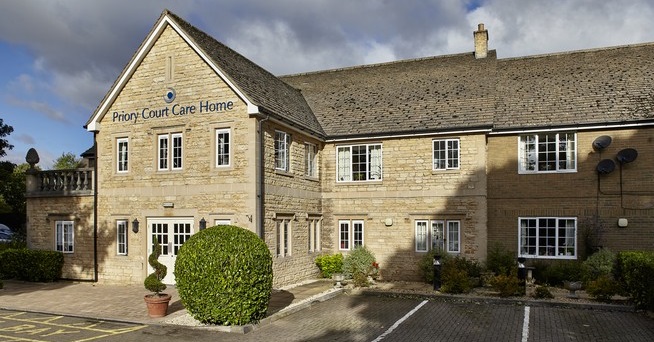The solution to the social care funding crisis could also solve the housing crisis

Social care has been one of the biggest public policy questions of the last 10 years. The issues go back well before 2010, though. Proposals to solve the social care problem were decisive in the 2010 and 2017 elections (Gordon Brown’s tax bombshell; Theresa May’s dementia tax). The side seeking to solve the problem lost in both cases.
It strikes me as the most obvious failure of our politics. Climate change is more serious, but has been the subject of a concerted campaign to claim it wasn’t happening, which has stalled us for decades. We knew something like Covid could happen, but it was hard to anticipate the damage. Yet everyone knows that social care has been in crisis. Everyone fears it for them or their family. I did a piece of research once that suggested older people were more frightened of going into a care home than they were of dying.
Yet this is something that will affect over 7 per cent of us in old age. It isn’t free, and the reason people have voted against those offering to solve the problem is that the voices criticising solutions have only succeeded in kicking the can down the road. The Boris Johnson solution is almost the worst way to solve the problem. It places the burden of tax on the smallest possible cohort of the working population. It effectively excludes revenue from those earning over £50,000, or who are landlords or who earn income from shares or bonds. In other words it is the working poor who will pay, while those who are asset rich get away without contributing.
There is an increasing recognition that inequalities in wealth are the driving force behind almost all our social problems. The work of Kate Pickett and Richard Wilkinson on how less equal societies have worse health, higher crime and shorter life expectancy should be a guide here. Thomas Piketty has written extensively on how assets – rather than wages – are the way in which intergenerational wealth accumulates. And in the UK the predominance of property as a way of holding assets creates a wide range of social problems. From homelessness to overcrowding to the problem of uneven economic development that has created left-behind communities the lack of flexibility in the housing market is a huge problem. And it is a problem driven by asset ownership.
There is, however, a very obvious solution to this problem. The assets held in property are held overwhelmingly by older people. If we introduced a way to unlock the wealth held in these property assets we could both fund the social care that we will all need and also transform the housing market. To be absolutely clear this would mean placing a tax on estates to pay for social care. It seems much fairer to capture the value of the rise in value of property and other assets than to place yet more tax on those in work. The most obvious way that the state collects this sort of income is through Inheritance tax, which raised £5.1bn in 2019-20. The Health Foundation estimated the funding gap in social care in England at £4.4bn – so this would mean doubling the amount raised in inheritance tax. That wouldn’t necessarily mean doubling the rate. The exemptions on inheritance tax are extensive, and it would be easy to close some of them. When the Grosvenor estate transferred in 2016, no inheritance tax was paid, despite the estate being valued at £11bn.
Given that Quantitative Easing has produced very substantial increases in the wealth of the richest, it would seem fair to recoup some of that increase. The Resolution Foundation suggest that 40 per cent of gains in asset prices went to the wealthiest 10 per cent. Asset ownership is almost entirely a preserve of the wealthy, this means that in a time where asset prices have increased and new revenue is needed to address the social care deficit we can address both problems at once.
But that requires political support. Too often progressives haven’t pressed the case for fairer taxes. This has produced a Tory proposal that looks like it will land solely on working people earning lower wages. If there is a time to press the case for fairer taxes – with a wealth tax to pay for social care, the time is now. And if we can help to address the problems of inequality and the housing market at the same time, so much the better.
PS. We hope you enjoyed this article. Bright Green has got big plans for the future to publish many more articles like this. You can help make that happen. Please donate to Bright Green now.
Image credit: Avery Healthcare – Creative Commons




Great article. Another thing I would add is that not only addressing gaps in social care funding, but also crafting a social care system that appeals rather than repulses, is critical to beginning to break the Tories’ electoral coalition.
At the moment Tories depend fundamentally on homeowners, and have added to that coalition retirees who have dropped out of the working class of skilled manual labourers, and into a class of relatively asset-rich (but sometimes quite low-income) homeowners especially in the so-called ‘Red Wall’.
Obviously we should be recognise that this new class of homeowners is vanishingly unlikely, as a group, to endorse the democratic public ownership and provision that we need to face 21st century challenges. We clearly need to overturn the organisational and political disadvantages, and asymmetries of power, that prevent a largely younger class of renters and precarious workers from extracting concessions from the state. But at the same time, peeling away the least secure elements of this class is surely important as one part of an effort to break the stranglehold it has over our political establishment, and over norms fiscal and monetary policy.
To the extent that it is possible to break this apparent gerontocracy, we need to provide compelling explanations for how the security that our new deal will provide for people – including in old age and sickness – is far superior to and more desirable than the ‘security’ of jealously defending house prices against downward pressure. Surely the construction of a plan for old age, including liberal provision of world-class social care, must be a central part of any such compelling case.